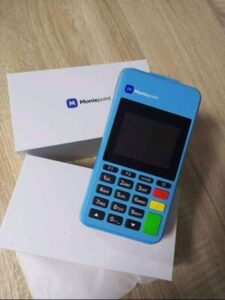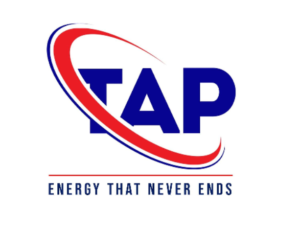Introduction to Tax Hacks
The thought of sorting through piles of paperwork, trying to understand complex tax codes, and maximizing deductions can seem overwhelming. However, with the right knowledge and strategies, you can turn tax season into an opportunity to save money and minimize stress. In this article, we will explore various tax hacks that will help you maximize deductions and minimize stress during tax season.
Understanding Deductions and Credits
Before we dive into the various tax hacks, it’s important to understand the difference between deductions and credits. By taking advantage of both deductions and credits, you can significantly lower your overall tax burden.
Common Tax Deductions and How to Maximize Them
There are several common tax deductions that individuals and businesses can take advantage of. One of the most well-known deductions is the mortgage interest deduction. If you own a home and have a mortgage, you can deduct the interest paid on your mortgage from your taxable income. To maximize this deduction, consider paying your January mortgage payment in December, allowing you to deduct an additional month’s worth of interest.
This deduction allows you to deduct the amount you pay in state and local taxes from your federal taxable income. To maximize this deduction, consider prepaying your property taxes before the end of the year, as they may be deductible in the current tax year.
Lesser-Known Tax Deductions and How to Take Advantage of Them
In addition to the common deductions, there are also lesser-known deductions that can help you save money on your taxes. One such deduction is the home office deduction. If you use a portion of your home exclusively for business purposes, you may be eligible to deduct expenses related to your home office, such as utilities and office supplies. To take advantage of this deduction, make sure to keep accurate records of your home office expenses throughout the year.
Another lesser-known deduction is the student loan interest deduction. If you are paying off student loans, you can deduct up to $2,500 of the interest paid on your loans from your taxable income. To maximize this deduction, make sure to keep track of all the interest you pay on your student loans throughout the year.
Tips for Organizing Your Tax Documents and Minimizing Stress
One of the keys to a stress-free tax season is to stay organized. By keeping your tax documents in order throughout the year, you can save yourself a lot of time and stress when it comes time to file your taxes. Here are some tips for organizing your tax documents:
- Create a dedicated folder or file for all your tax-related documents, such as W-2 forms, 1099 forms, and receipts.
- Keep track of your expenses and income throughout the year using a spreadsheet or accounting software.
- Set aside time each month to review and organize your financial documents.
- Consider using online storage or cloud-based solutions to securely store your tax documents.
By following these tips, you can ensure that you have all the necessary documents and information readily available when it’s time to file your taxes.
Utilizing Tax Software and Apps to Simplify the Process
In today’s digital age, there are numerous tax software and apps available that can help simplify the tax filing process. These tools can help you accurately calculate your deductions, guide you through the filing process, and even file your taxes electronically. Here are some popular tax software and apps that you can consider using:
- TurboTax: TurboTax is one of the most popular tax software options available. It offers a user-friendly interface, step-by-step guidance, and various features to help you maximize deductions.
- H&R Block: H&R Block is another widely used tax software that offers both online and desktop versions. It provides personalized tax advice, audit support, and a user-friendly interface.
- Expensify: Expensify is a mobile app that helps you track and categorize your expenses throughout the year. It can also generate expense reports and export data to popular accounting software.
By utilizing tax software and apps, you can streamline the tax filing process, minimize errors, and ensure that you are taking full advantage of all available deductions and credits.
Working with a Tax Professional for Expert Advice and Guidance
While tax software and apps can be helpful, there are instances where working with a tax professional is the best option. Tax professionals have in-depth knowledge of tax laws and regulations and can provide expert advice and guidance that software may not be able to offer. Here are some scenarios where it may be beneficial to work with a tax professional:
- If you have a complex financial situation, such as owning multiple businesses or investments.
- If you have experienced a major life event, such as getting married, having a child, or buying a home.
- If you are facing an audit or have received a notice from the IRS.
A tax professional can help ensure that you are accurately reporting your income and deductions, maximizing your tax savings, and avoiding any potential penalties or audits.
Avoiding Common Tax Mistakes That Can Increase Stress and Decrease Deductions
There are several common tax mistakes that individuals make, which can increase stress and decrease deductions. By being aware of these mistakes, you can avoid them and have a smoother tax filing process. Here are some common tax mistakes to watch out for:
- Failing to report all sources of income: It’s important to report all sources of income, including freelance work, rental income, and investment income. Failing to report income can result in penalties and audits.
- Incorrectly claiming deductions: Make sure to accurately report and document all deductions you are eligible for. This includes keeping receipts and records to support your deductions.
- Not filing on time: Failing to file your taxes by the deadline can result in penalties and interest charges. Make sure to mark the tax filing deadline on your calendar and file your taxes on time.
By avoiding these common tax mistakes, you can minimize stress and ensure that you are maximizing your deductions.
Planning for the Next Tax Year: Strategies for Ongoing Tax Savings
While tax season may only come once a year, it’s important to plan for the next tax year in order to continue maximizing your tax savings. Here are some strategies for ongoing tax savings:
- Contribute to retirement accounts: Contributions to retirement accounts, such as a 401(k) or IRA, can provide tax deductions and help you save for the future.
- Keep track of charitable donations: Make sure to keep a record of all charitable donations you make throughout the year. These donations may be tax-deductible and can help lower your tax bill.
- Review your withholding: Periodically review your withholding to ensure that you are not overpaying or underpaying your taxes. Adjust your withholding if necessary to avoid any surprises at tax time.
By implementing these strategies, you can continue to save money on your taxes year after year.
Conclusion: Taking Control of Your Taxes with Smart Strategies
By understanding deductions and credits, maximizing common and lesser-known deductions, staying organized, utilizing tax software and apps, working with a tax professional when needed, avoiding common tax mistakes, and planning for the next tax year, you can take control of your taxes and minimize stress. Remember, tax hacks are not about cheating the system but rather about using the available deductions and credits to your advantage. So, start implementing these smart strategies today and watch your tax savings grow.
CTA: Start implementing these tax hacks today and take control of your taxes. Your wallet will thank you!













